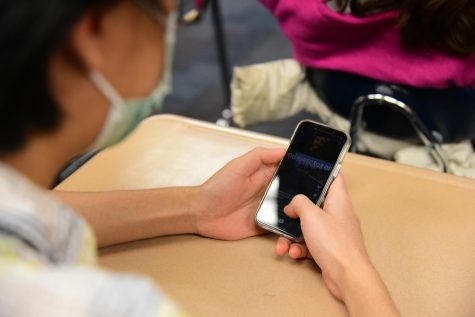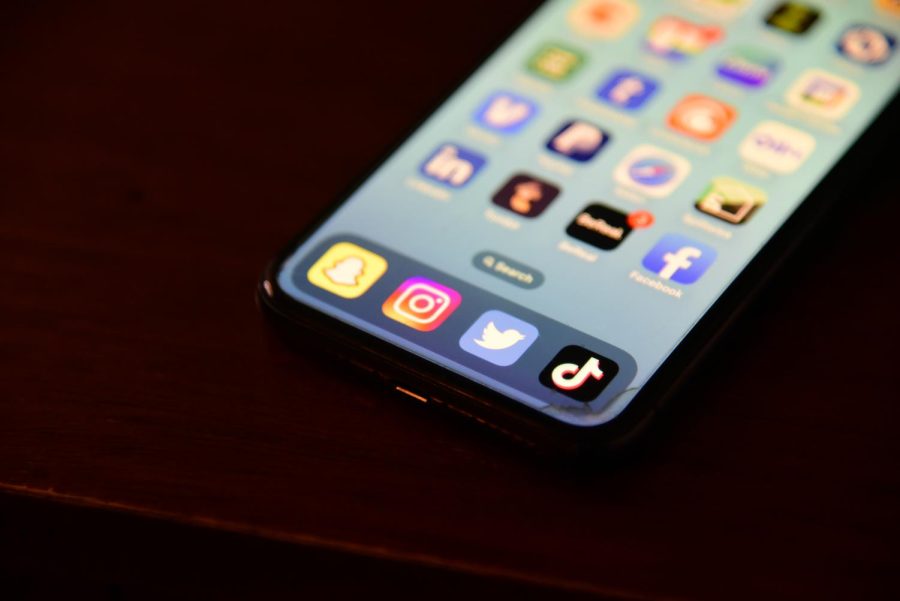Senior Somayeh Gambles said she believes social media can rapidly spread important information, specifically regarding the Mahsa Amini protests in Iran. Amini died in police custody after being detained by the Iranian morality police for incorrectly wearing her hijab.
“I do think it is beneficial because, it’s like, how else? There was no other way for anyone else to know (what was happening in Iran),” she said. “At first, they had everything blocked, they could post no social media, no Instagram, anything. They couldn’t post what was going on, so us, here, posting what was going on was the only way the world found out. So, in that situation, social media was good.”
Andrew Weaver, associate professor at Indiana University’s Media School, said he agrees with Gambles. Though he said there are concerns with factuality and truthfulness, he said he believes teenagers are more likely to remember information they learn from social media.
“I do think (for) teens, especially, encountering these issues in the context of TikTok is more relatable than what they’re going to encounter through traditional news sites because it’s most likely being produced and uploaded by people who are closer to you in age,” Weaver said. “If we feel like we can identify with the people in the story or the people in the video, then we’re going to pay much more attention to it. We’re going to be more likely to remember it. We’re going to learn more from it.”
Senior Sarah Alhaddad said she agreed social media can be used to raise awareness for important issues. However, she said she believes awareness raised on social media doesn’t translate to change in the physical world.
“I think that what we see on social media, even though it is important and it’s important to raise awareness, it may not reflect what’s happening in our everyday lives,” she said. “Take a step back from social media and see the legal change, legislations, these face-to-face interactions in these tangible spaces—we see that (social media) change may not translate to what we see in real life.”
Senior Eric Yang said he agreed with Alhaddad. He said he believes people should still have face-to-face conversations about issues spread on social media.
“The (things you) see online, issues that (are) political or social or even small things, don’t keep all of your discussion and debate online. Make sure you discuss these issues in person, with other people who are interested or have stakes in these issues,” Yang said. “There’s that sense of anonymity online that

distorts the way people talk to each other online. It’s important to—if you do interact online—to also have interactions in person.”
Gambles said she understands Alhaddad’s concerns. Ultimately, she said social media is a good way to start raising awareness for issues no one knows about.
“I feel like there are certain videos that everyone does need to see because you need to know what’s going on (and) that’s the only way to know what’s going on,” Gambles said. “Posting (something), that’s one more person that will look at it. If it’s in bright colors, someone will click on it and see it. That’s one extra person that will see it that day. To me, that is enough, for one extra person to see.”
This is the third part for this story on the impact of social media. Read the first part here and the second part here.

































![AI in films like "The Brutalist" is convenient, but shouldn’t take priority [opinion]](https://hilite.org/wp-content/uploads/2025/02/catherine-cover-1200x471.jpg)









































![Review: “The Immortal Soul Salvage Yard:” A criminally underrated poetry collection [MUSE]](https://hilite.org/wp-content/uploads/2025/03/71cju6TvqmL._AC_UF10001000_QL80_.jpg)
![Review: "Dog Man" is Unapologetically Chaotic [MUSE]](https://hilite.org/wp-content/uploads/2025/03/dogman-1200x700.jpg)
![Review: "Ne Zha 2": The WeChat family reunion I didn’t know I needed [MUSE]](https://hilite.org/wp-content/uploads/2025/03/unnamed-4.png)
![Review in Print: Maripaz Villar brings a delightfully unique style to the world of WEBTOON [MUSE]](https://hilite.org/wp-content/uploads/2023/12/maripazcover-1200x960.jpg)
![Review: “The Sword of Kaigen” is a masterpiece [MUSE]](https://hilite.org/wp-content/uploads/2023/11/Screenshot-2023-11-26-201051.png)
![Review: Gateron Oil Kings, great linear switches, okay price [MUSE]](https://hilite.org/wp-content/uploads/2023/11/Screenshot-2023-11-26-200553.png)
![Review: “A Haunting in Venice” is a significant improvement from other Agatha Christie adaptations [MUSE]](https://hilite.org/wp-content/uploads/2023/11/e7ee2938a6d422669771bce6d8088521.jpg)
![Review: A Thanksgiving story from elementary school, still just as interesting [MUSE]](https://hilite.org/wp-content/uploads/2023/11/Screenshot-2023-11-26-195514-987x1200.png)
![Review: "When I Fly Towards You", cute, uplifting youth drama [MUSE]](https://hilite.org/wp-content/uploads/2023/09/When-I-Fly-Towards-You-Chinese-drama.png)
![Postcards from Muse: Hawaii Travel Diary [MUSE]](https://hilite.org/wp-content/uploads/2023/09/My-project-1-1200x1200.jpg)
![Review: "Ladybug & Cat Noir: The Movie," departure from original show [MUSE]](https://hilite.org/wp-content/uploads/2023/09/Ladybug__Cat_Noir_-_The_Movie_poster.jpg)
![Review in Print: "Hidden Love" is the cute, uplifting drama everyone needs [MUSE]](https://hilite.org/wp-content/uploads/2023/09/hiddenlovecover-e1693597208225-1030x1200.png)
![Review in Print: "Heartstopper" is the heartwarming queer romance we all need [MUSE]](https://hilite.org/wp-content/uploads/2023/08/museheartstoppercover-1200x654.png)




